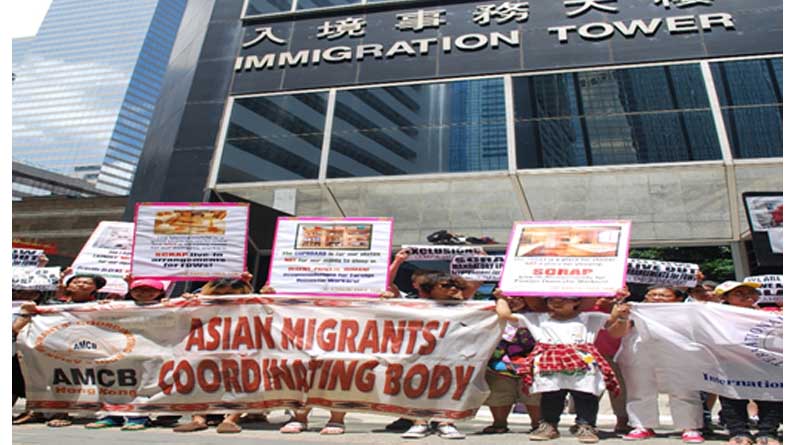Immigration Eyes ‘Undertaking’ from Employers to Ensure Adequate FDH Quarters

AFTER the High Court upheld the “live-in” rule for foreign domestic helpers (FDHs), the Immigration Department (Immd) has suggested that employers should execute an “undertaking,” or a formal pledge, to provide adequate quarters for FDHs before their visas can be approved.
Immigration officials told Philippine Consulate General (PCG) officers during the Technical Working Group (TWG) meeting on March 14 that employers who violate the “undertaking” will not be allowed to hire FDHs in the future.
“(Immigration) said that the employers should provide an undertaking upon submission of a contract for the approval of HSWs (household service workers) visa,” said a report about the TWG meeting submitted by the PCG to the Department of Foreign Affairs main office in Manila.
“Future applications will be automatically denied once any misrepresentation or breach of undertaking is found,” it added.
The ImmD officials made the suggestion after the High Court junked the petition filed by Filipina Nancy Almorin Lubiano challenging the mandatory live-in rule that ImmD imposed in 2003.
“Post requested (ImmD) to consider proposing action plans and inspections to be carried out after the issuance of visa to ensure compliance by employers throughout the duration of the contract,” the report said.
It said the ImmD officials gave an assurance that they regularly verify the suitability of accommodation declared by the employer in the Standard Employment Contract (SEC).
They noted that FDH employers are required to submit detailed information of their home from the size of the flat, number of occupants, and whether FDH has own room or shared with employer’s relative.
Labour Department officials added that it is a mutual duty of “both parties to check if the accommodation is appropriate before signing the employment contract.”
The Immd officials promised during the meeting that their department will investigate complaints filed by FDHs about their living quarters.
In junking Lubiano’s petition, the High Court ruled in February that the “live-in” rule was not discriminatory.
It rejected the claim that the “live-in” arrangement increases the risk of the rights of foreign domestic workers being violated.
Lubiano had said that the “lived-in” rule was unconstitutional and that it heightened the risk of abuse of FDHs.
(Source: HongKongNews.com.hk)



